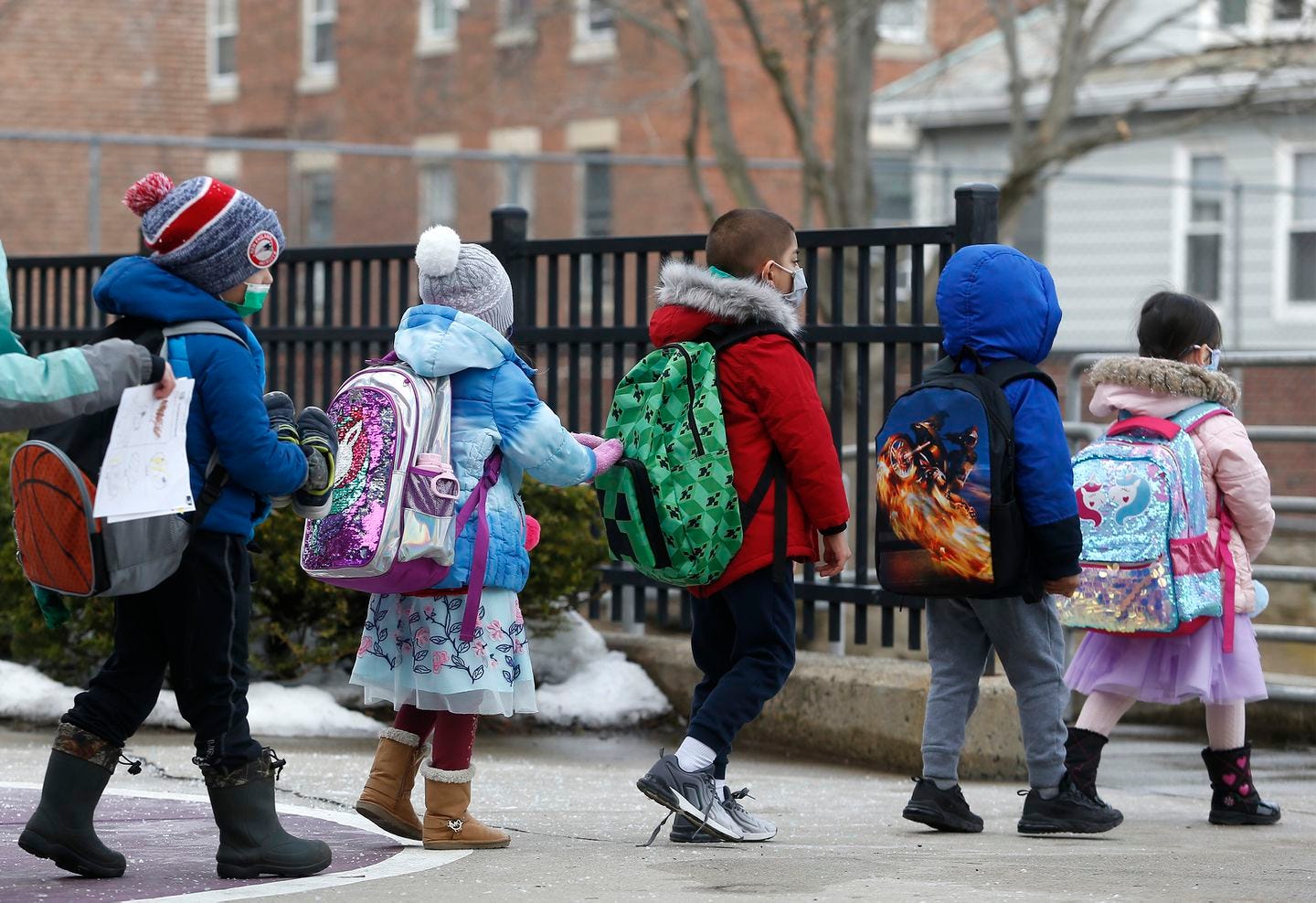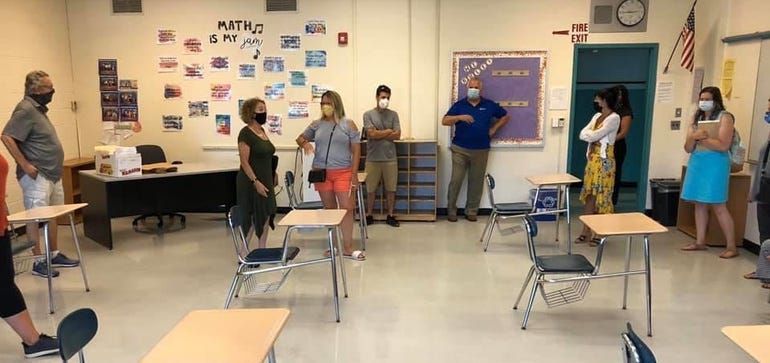“The kids are not alright.” This is a recurring thought for me.
In our household, this feeling is not political (even though the moment it leaves my brains and enters the public narrative it becomes political). Our family talks a lot about how we are doing at the dinner table or during Sunday breakfast. Since the holidays, my kids have become more transparent about the impact of being home in their rooms nearly 24/7. They don’t really feel like going outside to play or coming downstairs for meals. It seems like the only thing they are really interested in is getting through their school work and tuning out the rest of the world. It is easy, as a parent, to enter a downward spiral of feeling pretty bad about it all. I am not doing that and if anyone feels like they are headed that direction, please just send me a note so that we can chat about the layers of this unusual experience.
I bring this up because over the weekend Portland had sunshine (please don’t tell anyone because it is a little secret that the Pacific Northwest actually enjoys the perfect spring/ summer weather). My kids and I visited our neighborhood park for the first time in nearly one year. My youngest, who is almost two, went on the swing and slide for the first time. Like any parents of multiple children I started comparing her “first slide” to that of my other children and it floored me. I realized how different her “firsts” have been this year. Similarly, my husband and I were reflecting on my kindergartener’s development. We discussed how our five year old has never been into a school building and there are clear developmental characteristics of kindergarten learning that he is missing. I know that my kids will be alright, in the end. That said, it feels like a disservice not to explore how to expand and accelerate opportunities to make this better for each individual child and student in our community sooner, rather than later.
FEDERAL POLICY AND POLITICS
“The impacts of COVID-19 … on students… & school systems are vast, in no small part because of the prior administration’s mismanagement … we’re looking to a new administration for a better sense of how the rest of this school year.. might look.” @JonValant @BrookingsEd https://edpolicyhotlist.substack.com/
— John Valant, Senior Fellow, Governance Studies, Brown Center on Education Policy (February 19, 2021)
Biden brings back bipartisan meetings at the White House | The Hill
Ed Dept: States must assess students, but with flexibilities | K12Dive
A crash course in education politics for the Biden administration | Brookings
STATE AND LOCAL EDUCATION POLICY
"Questions have lingered throughout the pandemic about whether state[s] have authority to order schools to reopen, especially.. where districts enjoy a high degree of local control." @BostonGlobe https://edpolicyhotlist.substack.com/
— James Vaznis and Felicia Gans, Boston Globe (February 23, 2021)
California’s new grading guidance aims to help teachers assess progress in distance learning | CA
Tennessee Doubles Down On Literacy In Its COVID-19 School Recovery Effort | Forbes
REOPENING SCHOOLS
"before making decisions, [Supt] Conner said he consults communities from across the spectrum. 'I receive emails from one demographic subgroup, [and] I have to intentionally reach out to other subgroups about what they’re feeling' to balance viewpoints" @K12DiveNews https://edpolicyhotlist.substack.com/
— Michael Conner, Superintendent, Middletown Public Schools, Connecticut (February 24, 2021)
4 strategies for building trust among families as schools reopen | K12Dive
Do Americans Think Schools Should Reopen? | FiveThirtyEight
Burbio's K-12 School Opening Tracker | Burbio
New Report: Instructional Delivery Under Michigan Districts’ Extended COVID-19 Learning Plans | EPIC
National Trends in School Openings Since November 2020 | FutureEd
CDC Investigation: Educators ‘Central’ to In-Person Coronavirus Transmission at Schools | Us News
TEACHING AND LEARNING
"the response to the pandemic has made teaching much more difficult and a lot less satisfying, and this is manifesting itself in a reluctance to further entrench the practices that are making teachers miserable" @educationgadfly @rpondiscio https://edpolicyhotlist.substack.com/
— Robert Pondiscio, Vice President for External Affairs, Thomas B. Fordham Institute (February 25, 2021)
Stress Topped the Reasons Why Public School Teachers Quit, Even Before COVID-19 | RAND
Is hybrid learning killing teaching? | Fordham
Educators are key in protecting student mental health during the COVID-19 pandemic | Brookings
ASSESSMENT AND ACCOUNTABILITY
“Employing any of [these assessment flexibilities] is practical if the state and its assessment provider have already engaged in ..redesign work and only if essentially all students can test in schools.” @ScottFMarion @EducationNext https://edpolicyhotlist.substack.com/
— Scott Marion, Executive Director, Center for Assessment (February 2021)
Schools must still give standardized tests this year, Biden administration says | Chalkbeat
One Year into Pandemic, Far Fewer Young Students are on Target to Learn How to Read, Tests Show | The74
Biden Administration Rightly Holds The Line On Statewide Academic Assessments| Forbes
Focus on Instruction and Intervention, Not Testing, in 2021 | EdNext
UPCOMING EVENTS
Tuesday, March 2 (2:00 PM ET) NAESP presents Supporting Elementary Principals as Early Childhood Leaders.
Wednesday, March 3 (3:00 PM ET) SREE presents The Pandemic and What School Districts Want to Know: A Conversation with District Research Directors.
Wednesday, March 3 (3:00 PM ET) Us Senators Chris Murphy and Michael Bennet present National Virtual Briefing on Summer Enrichment Funding.
Thursday, March 4 (12:00 PM ET) National Academy of Education presents Educational Assessments in the COVID-19 Era and Beyond.
Dr. Christine M. T. Pitts serves as Manager of Research and Evaluation at Portland Public Schools. As an Oregonian, raised by a multicultural family of educators, she brings a decade of progressive strategic leadership experience, a transformative vision, and analytic skill to crafting state education policy. An educator and researcher by training, she has conducted legislation, governance, and policy analyses on a wide array of education issues using social network analysis and mixed methods research. In addition, Dr. Pitts is a facilitative leader who deeply understands and co-constructs local and national partnerships across stakeholder groups. Dr. Pitts currently coordinates between state and national policy leaders to investigate and advocate for policies that prioritize racial equity in education. Christine lives with her husband and four children in Portland, Oregon. Follow her on Twitter @cmtpitts.










